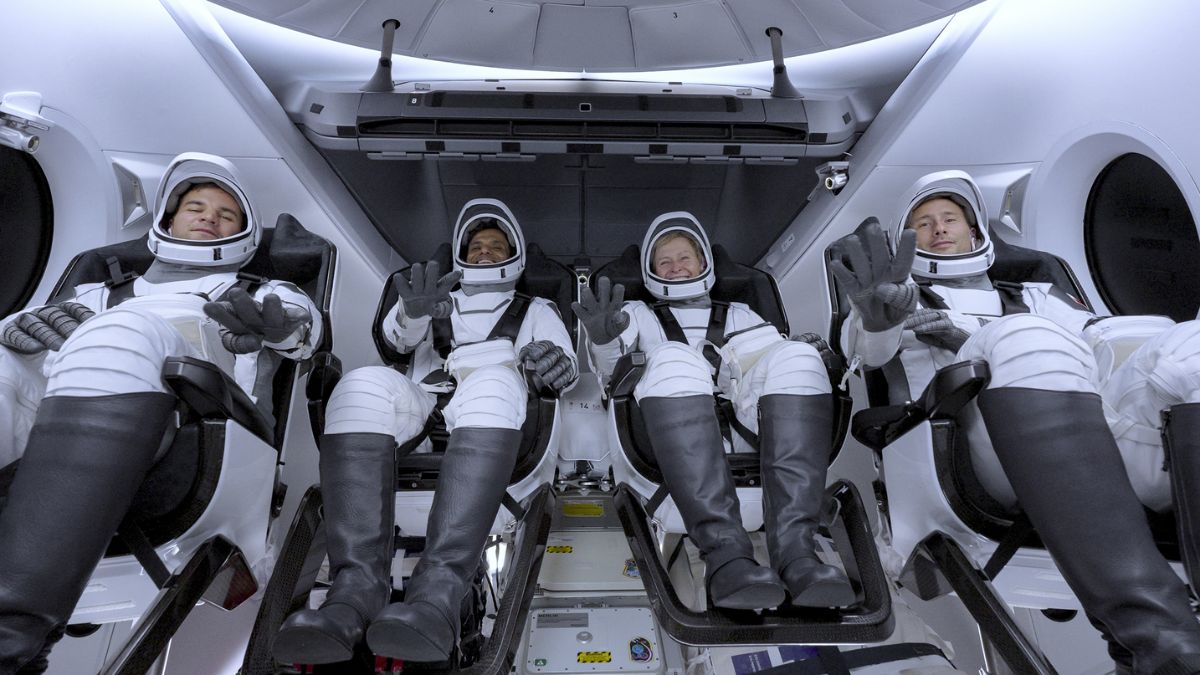After several delays, Indian astronaut Shubhanshu Shukla’s Axiom-4 mission was finally launched on Wednesday (June 25). After 26 hours, the four astronauts will reach the International Space Station (ISS) on board SpaceX’s Falcon 9 rocket that blasted off from Nasa’s Kennedy Space Centre in Florida.
With this, Indian Air Force (IAF) Group Captain Shukla has become the second Indian in space. He and the other crew members on the Axiom-4 mission will spend 14 days at ISS conducting experiments. As their space journey begins, how will microgravity affect the astronauts’ bodies?
We take a look.
Why does space travel impact human health?
It took over a million years for the human body to adjust to the Earth’s environment, which entails gravity, lower levels of radiation, and atmospheric composition.
When a human goes to space , there is hardly any gravity. Without the Earth’s gravitational pull on the body, it cannot function properly.
In space, astronauts face several physiological and psychological challenges, especially during long stays, Afshin Beheshti, director of the Center for Space Biomedicine at the University of Pittsburgh, told Reuters.
We are all exposed to low levels of radiation on Earth every day. However, astronauts are exposed to varied and higher levels of radiation in space – different from those on the home planet, according to Nasa, the American space agency.
The Earth’s magnetosphere, the region of space surrounding Earth dominated by the planetary magnetic field, offers protection to astronauts on missions in low-Earth orbit (Leo). The ISS, where India’s Shukla is staying in space, is in low-Earth orbit.
Astronauts who travel beyond Leo – to the Moon or Mars – would be exposed to higher radiation levels.
How space travel affects astronauts
Space travel has an impact on nearly every part of the astronaut’s body. After reaching outer space where there is microgravity, some astronauts experience space motion sickness such as headaches, nausea, and vomiting. This happens as space affects spatial orientation, head-eye and hand-eye coordination, balance, and locomotion, as per Nasa.
The condition does not last long, ending in a couple of days as the body adjusts to microgravity.
Due to a lack of gravity, bodily fluids move upward, resulting in facial swelling. This also subsides after some days once fluids are evenly distributed in the body.
As the fluids shift towards the head, it puts pressure on the eyes and causes vision problems . Eyesight can be impacted, including changes in vision, which could occur just weeks in space. While some vision changes reverse in a year of heading back to the Earth, others can be permanent.
Muscle and bone mass start to diminish in microgravity. As they do not have a proper diet and exercise routine, astronauts lose muscle mass in space faster than they would on Earth. Just two weeks in space leads to a 20 per cent decline in muscle mass, according to a study published in the Canadian Medical Association Journal.
Astronauts can lose as much as 40 per cent of muscle and 12 per cent of bone mass after five months in space, as per the UK Space Agency. After returning to Earth, it can take four years for their bone mass to return to normal.
Spaceflight also has an impact on the hearts of astronauts. In space, the heart does not have to work as hard to pump blood. If astronauts stay long in space, the size of their hearts could decrease. After returning to Earth, they are likely to strain their hearts.
Space radiation can lead to DNA damage as well as increase the risk of cancer and degenerative diseases, such as heart disease and cataracts.
Skin, genes, immune system and gut bacteria of the astronauts have also been affected in a long-duration spaceflight.
Prolonged stay in space could further have an impact on the mental well-being of astronauts as they have to live in confined and isolated environments. With limited social interaction and exposure to natural stimuli, they could experience psychological stress, sleep disturbances, decline in cognitive performance and mood disorders, Beheshti told Reuters.
As Shukla and his team would spend only two weeks in space, they are unlikely to face many of the health issues associated with long spaceflights.
With inputs from agencies


)

)
)
)
)
)
)
)
)



